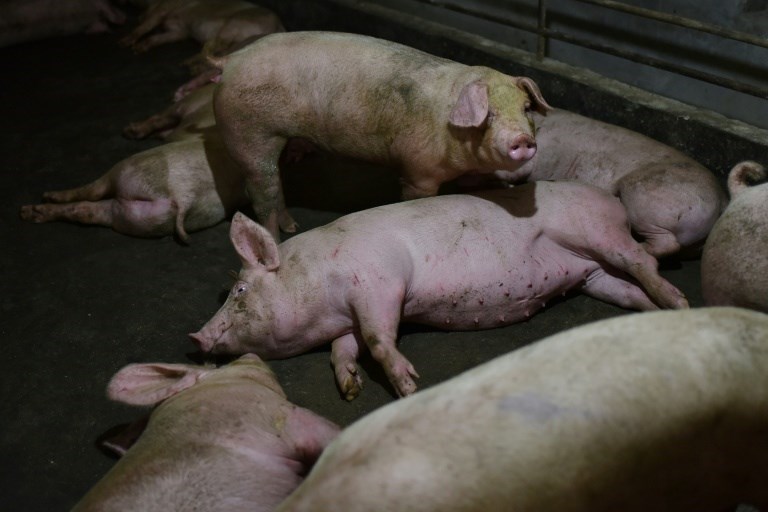Hong Kong will cull 4,700 pigs after African swine fever was detected in an animal at a slaughterhouse close to the border with China, the second such case in a month in the crowded financial hub.
The animal came from a farm in the southern Chinese province of Guangdong and importation from mainland China has been suspended until further notification, Sophia Chan, Secretary of the city's Food and Health Department said Friday night.
The government-run slaughterhouse in Sheung Shui will be closed for cleansing and disinfection, she added.
Last month around 6,000 pigs were culled after the virus was detected in a pig imported from a farm in the same province. Supply from across the border was temporarily suspended for a week during the disinfection of slaughterhouse.
Pork is a staple of Chinese cuisine, with space-starved Hong Kong importing the majority of what it consumes from the mainland.
After African swine fever spread across more than half of China's provinces last year, Hong Kong banned imports from any Chinese farm where the virus had been detected.
Chinese officials have said hundreds of thousands of pigs were culled in a bid to stop its spread -- an effort that has also seen restrictions on transporting pigs from affected areas.
With some of the world’s most densely populated streets, Hong Kong remains on high alert to diseases. In 2003, some 300 people died during an outbreak of severe acute respiratory disease (SARS).
The virus is not dangerous to humans but is fatal to pigs and wild boar.



